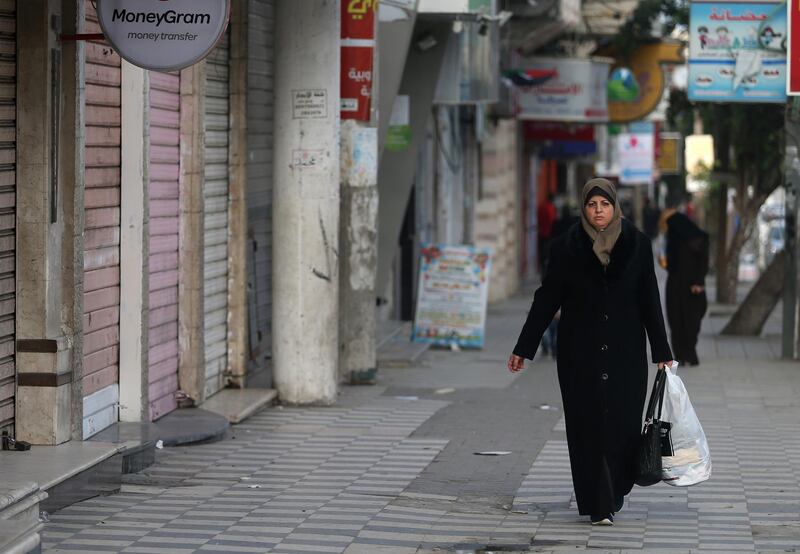The Covid-19 pandemic has aggravated the "dire" economic conditions in Occupied Palestinian Territory (oPt), which were already moving from "bad to worse" even before the health crisis, the United Nations said.
The restrictions imposed to curb the spread of the virus when the first case was reported in Palestine in March have had "grave fiscal implications," the United Nations Conference on Trade and Development (UNCTAD) said in a report on Tuesday.
About a month after the outbreak, revenues collected by the Palestinian National Authority (PNA) from trade, tourism and transfers plunged to 20-year lows. Additional expenditure on health, social welfare and support for the private sector in response to the pandemic have worsened the fiscal pressure.
Official and private transfers, on which the Palestinian economy is highly dependent, are projected to decline in the aftermath of the pandemic, the report said.
This year, donor support to Palestinians is expected to drop to about $266 million (Dh977m), the lowest in more than a decade, according to the UNCTAD.
Various estimates point to a grim outlook. The pandemic could cost the grant and aid-dependent Palestinian economy up to lose up to 35 per cent of its gross domestic product (GDP), depending on the severity and duration of the crisis. Fiscal revenues are expected to nosedive in line with the GDP.
Faced with the dual economic and health crises, the PNA lacks the economic policy tools to cope with the fallout from the pandemic. The authority lacks access to external borrowing, has no national currency, no independent monetary policy and no fiscal space, UNCTAD said.
“The international community should urgently redouble support to the Palestinian people to enable them to cope with the economic fallout from the pandemic," Mukhisa Kituyi, secretary-general of UNCTAD, said. "There is no alternative to donor support for ensuring the survival of the Palestinian economy."
Even before the economic shock from the coronavirus outbreak, the outlook for the Palestinian economy in 2020 and 2021 was already bleak, with GDP per capita projected to decrease by 3 per cent to 4.5 per cent, according to the UNCTAD.
GDP per capita had declined for the third consecutive year as the Palestinian economy continued to slide in 2019 and the first half of 2020.
In 2019, real GDP grew less than one percentage point, not improving from the two preceding years. The West Bank economy grew 1.15 per cent, its lowest expansion rate since 2012, while Gaza’s growth was virtually zero as it failed to rebound from the two consecutive GDP contractions of 7.7 per cent and 3.5 per cent in 2017 and 2018 respectively.
The Palestinian economy has also been plagued by persistent high poverty and unemployment levels. Unemployment increased to 33 per cent in 2019 from 31 per cent in 2018, while the level of poverty rose to 29.2 per cent between 2011 and 2017 and has since worsened.
"The measures imposed by Israel, decline in donor support, and the ensuing poor economic performance, have resulted in a significant deterioration of socio-economic conditions" UNCTAD said.
Restrictions and leakage of fiscal resources due to the occupation continue to undermine the Palestinian economy.
The UNCTAD previously estimated the annual leakage of Palestinian fiscal resources to the Israeli treasury at 3.7 per cent of GDP or 17.8 per cent of total tax revenues.
In March, a new annual deduction of $144m from Palestinian clearance revenues has been put in place.
"The fiscal standoff weighed heavily on the economy and constrained GDP growth," the report said.
The impact of the fiscal loss has been compounded by the decline in donor support to the PNA. Donor budget support fell to 3.5 per cent in 2019 from 32 per cent of GDP in 2008.
"Palestinian women have paid the heaviest cost, as the decline of the agricultural sector has deprived them of opportunities in their traditional sector of employment, with no alternatives emerging in the post-occupation era," the UNCTAD said.
Israeli house demolitions and barriers to movement have limited women's education and employment opportunities.
"The cumulative effects place women at increased risk of poverty and marginalisation," the report said.








